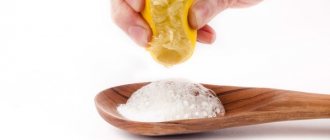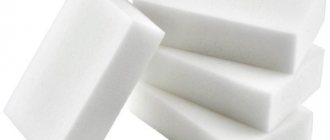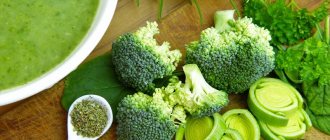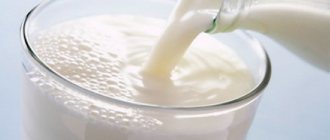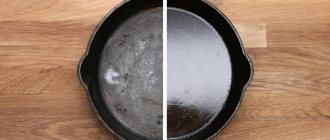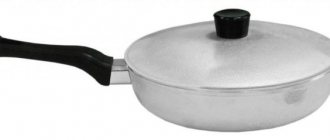This material will discuss how to use aluminum cookware in everyday life.
Utensils made of aluminum are an indispensable item in every kitchen. A frying pan, ladle, saucepan, bowl and other similar kitchen utensils attract modern housewives because they are lightweight and very inexpensive.
Despite the fact that cookware is famous for its undeniable benefits, it can sometimes have a negative impact on human health. Surely you are also concerned about the question: is aluminum cookware healthy or harmful? We will try to figure this out.
What is aluminum
Aluminum has a silvery-white tint, it bends and melts easily. The main advantage of this material is its weight; it is one of the lightest metals. It is also valued for its good thermal conductivity. At one time, aluminum was called “flying”; this metal was used in the construction of aircraft. To add strength, an admixture of magnesium is added to the composition. This alloy is called duralumin and is often used in the production of tableware. To reduce the cost of products, silicon is added to aluminum to produce silumin.
Is aluminum harmful to the body?
The World Health Organization (WHO) made a statement in 1998 that aluminum does not cause harm to humans if the amount of metal entering the body does not exceed 30-50 mg per day. It was also stated that this material is not a carcinogen, that is, it cannot cause cancer. As for Alzheimer's disease, no connections were identified between it and aluminum entering the body.
Are aluminum cookware harmful?
It has been established that a person receives a portion of natural aluminum every day along with food and water, but this does not affect health in any way. But what about dishes made of this metal? Scientists have conducted research and proven that the minimum dose of aluminum that enters food during storage and cooking does not exceed 3 mg, which is 10 times less than the safe amount.
Advantages
Aluminum cookware has a lot of advantages, so no one refuses to produce it. Among the advantages, the following factors stand out:
- price;
- durability;
- ease;
- variety of forms;
- corrosion resistance (does not rust).
These qualities are explained by the abundance of aluminum and its low weight. This metal is ductile and can be easily machined (stamping, bending) in production. Aluminum has a low melting point, which allows casting. The manufacture of products from this material does not require a large amount of energy consumption and financial investment.
If you decide to get a new bowl, then ask the seller how the aluminum cookware was made. Buckets, baking sheets, and bowls will last less if they are made using the stamping method, while cast aluminum utensils are strong and durable, but they are more expensive. Pay attention to the thickness of the walls: if it is a frying pan, then the thickness of the bottom should not be less than 1.5-2 mm. Thin-walled stamped aluminum cookware bends easily, is subject to deformation, and quickly fails, but with proper care and use it will last forever.
Why is it dangerous?
When cooking acidic foods, such as marinade in a pan, the walls of the cookware turn white. This is due to the fact that under the influence of an aggressive environment, the oxide film, which appears as a result of the oxidation reaction of aluminum in air, is destroyed. This film is a corrosive layer that occurs when oxygen molecules diffuse with the metal. Initially, it is formed after anodic oxidation (chemical anodization) during manufacturing.
If the dishes are anodized, the resulting artificial oxide film will be more resistant and durable. It prevents pure metal from penetrating into food. If it is destroyed, food may acquire a metallic taste, but this will not affect health in any way. The film can be restored, but it will no longer be as strong. To do this, you need to fill a container with water and wait 15 minutes. After this, the dishes should be wiped with a dry, clean cloth. These actions will lead to partial renewal of the film.
- What foods contain iodine
- Heart attack - symptoms, first signs in women and men
- Movalis - instructions for use. Indications for the drug Movalis in injections or tablets with price and reviews
Advantages and benefits
The production of aluminum cookware does not require large financial costs. Therefore, it is accessible to many. The plasticity of the metal makes it possible to manufacture products of various shapes. Other positive properties of aluminum cookware include:
- it does not rust;
- durability;
- dishes are prepared quickly, because... the dishes have high thermal conductivity;
- it is easy to care for;
- light;
- food does not burn or stick in such a saucepan.
If used incorrectly, the metal may darken, ruining the surface. The disadvantage of aluminum utensils is that not everything can be cooked in such utensils. It is also undesirable to store acidic foods. Otherwise, the oxide film is destroyed. The food will have a metallic taste. The oxide film can be restored, but it will not be as strong as it was at first.
You can eat sour foods with aluminum spoons or forks, because... During the meal, the metal does not have time to oxidize.
What can you cook in aluminum cookware?
You cannot ferment cabbage in an aluminum container or cook and store sour dishes in it, otherwise the saucepan will become unusable. Even restoring the film won't help. In dishes made of aluminum, you can cook any dishes that do not contain acidic ingredients:
- porridge of any kind;
- dairy, but not fermented milk products;
- soup;
- meat;
- fish;
- pasta;
- non-acidic vegetables cooked without adding vinegar;
- sweet fruit jam.
Terms of use
Proper use of aluminum cookware will preserve the appearance of the container. And also you won’t need to clean it often and the dishes will retain their taste.
You can cook jam in such a container. Here are some tips on how not to spoil your sweet dish. The juice that comes out of berries or fruits during cooking contains acid. Therefore, if jam is cooked for a long time, the oxide film begins to collapse. Due to the effect of acids on the walls, the color of the dish may change and its taste may deteriorate.
It is not advisable to prepare marinades and pickles in aluminum containers. When vegetables come into contact with salt, they release acid and it reacts with the metal. For pickles, it is better to use enamel (without chips) or wooden dishes.
If there is no other suitable container other than aluminum, food can be protected from contact with metal. To do this, cover the walls and bottom of the pan or basin with plastic wrap. And it is important to mix the food carefully. If the food-grade plastic film is damaged, the pickles or marinades will be spoiled.
You can cook sour foods (borscht, compote, tomatoes, etc.) in aluminum containers without harm to health. Immediately after removing the finished product from the stove, you need to pour it from the pan into another container. For example, in glass.
Containers, the walls and bottom of which are made of aluminum, but additionally have a non-stick or other coating, can be used for preparing and storing dishes. Even if they are alkaline and acidic liquids. Such utensils can be used without restrictions.
In aluminum pans you can cook milk porridge, pasta, potatoes, fish or meat. You can fry eggs, onions, carrots and other vegetables in a frying pan.
You can store cereals, sugar and other dry bulk products in an aluminum container. It is better not to use such dishes for picking fresh berries. When struck, which may occur during harvest, and under its own weight, the berries will begin to release juice. And the longer the berries are in aluminum containers, the greater the concentration of metal in them.
When stored for a long time in metal containers, aluminum will not cause poisoning. But the dishes will be spoiled, because... will lose their original taste.
It is believed that if the rules for using such utensils are not followed, various health problems may develop. Despite the lack of facts, we do not recommend neglecting your own safety.
How to care for aluminum cookware
Aluminum kitchen utensils need to be looked after very carefully. Do not use iron brushes or abrasives. A soft sponge and liquid detergent perfectly remove all dirt from aluminum dishes. If something burns on a pot or pan during cooking, use the following means:
- Soda solution. Dissolve one tablespoon of baking soda in one liter of warm water. Wash off the carbon deposits and carry out manipulations to restore the oxide film.
- Vinegar solution. This cleanser is used to add shine to the outside. Dilute vinegar and water in equal proportions. Dampen a clean napkin in the mixture and wipe the pan, stewpan, casserole dish and other aluminum products. Dry with a towel.
- Mustard powder. This simple remedy will rid your kitchen utensils of grease and clean the non-stick coating. You need to rub mustard on the walls and rinse with clean warm water.
- Coca Cola. You will be surprised, but you can wash off old carbon or scale with regular cola. Soak a sponge in the drink and gently wipe the sides of the aluminum cookware, leave for a few minutes and rinse. If there is contamination at the bottom of the saucepan or frying pan, simply pour cola, boil, wait two minutes and rinse with clean water. The smoke will go away.
- Ammonia. You can restore aluminum cookware to its former beauty and shine using ammonia. For a liter of water, take one tablespoon of ammonia and a little detergent. Mix these components and wipe the dishes with the resulting mixture, rinse with water. She's shining again.
Choosing a pan based on the material
Depending on the material, pans for preparing compote can be made of aluminum, enameled, cast iron, glass, or stainless steel. Each material has its pros and cons, but not everyone can be recommended for cooking fruits and berries.
Enameled carbon steel pans are ideal for cooking compote for the winter and for quick consumption. They are durable and hygienic. The enamel is resistant to oxidation, so the compote can be safely left in the same container in the refrigerator. Fruit acids will also not damage the walls, thanks to the coating.
There are also disadvantages. It is not recommended to use enamel cookware if chips and cracks are detected. In this case, metal salts will penetrate into the products. To extend service life, you need to avoid impacts, cleaning with abrasive particles and hard sponges, and avoid sudden temperature changes.
When choosing, keep in mind that manufacturers use two methods for enamel coating: spraying or dipping. When sprayed, the protective layer is thin and short-lived. It is better to buy a saucepan for compote, coated with enamel using the dipping method.
It is easy to understand that the dishes are coated with enamel using the dipping method. There will be 2 or 4 black dots on the outer surface, these are the contact points of the dipping fasteners. Knowing this feature, you will not be deceived by unscrupulous sellers.
Bottom thickness: at least 4 mm. The interior coating should be white, black or beige; additional dyes used for coloring are toxic.
Stainless steel pans are not inferior to enameled ones when it comes to cooking compote, and in some ways they are superior to them. They are practical, durable, and are not afraid of impacts and cleaning with abrasive substances. You can store finished products for a long time. When heated, heavy metal salts are not released.
In stainless steel pans you can cook compote from any fruit, berries, dried fruit. Even if it's sour currants or tender raspberries. Oxidation is excluded. Stainless steel does not crack due to temperature changes and does not rust.
A high-quality stainless steel pan should have a bottom thickness of 4 mm and a wall thickness of 0.5-1 cm. The thickened bottom and walls evenly distribute and accumulate heat. Read about choosing a good pan in our other article.
The disadvantages include the high cost (the thicker the bottom and walls, the higher the price). Over time, stainless steel darkens and permanent stains may appear, causing the appearance to become unpresentable.
Stamped aluminum cookware is lightweight, inexpensive, and heats up quickly. But not every aluminum pan is suitable for fruits and berries. It is important here that the alloy is of high quality. With prolonged interaction with fruit acids, aluminum begins to oxidize.
However, you can cook compote in aluminum pans if they are fruits and berries with low acidity. We have already talked about far-fetched fears in the instructions for choosing utensils for making jam. In addition, cooking lasts several minutes, during which oxidation simply does not have time to occur.
The main thing is not to leave the compote in the bowl, but to immediately pour it into a jug or pour it into jars. If you have a protective coating: Teflon, ceramic, stone or titanium, then you can also safely cook compote from dried fruits or fresh fruits and berries.
Cast iron is prone to rust. When interacting with sour fruits and berries, the walls may oxidize. During the cooking process, all the fat from the pores will go into the compote, and the non-stick coating will be damaged. You can only use non-stick cast iron pans if nothing else is available.
Glassware itself is safe and inert, but in this segment the volumes do not exceed 3.5-4 liters. You can choose to prepare compotes in small quantities, but for winter preparations you will have to look for another option.
You can buy a pot for compote in an online store or in a shopping center in your city. It is more profitable to make such purchases on sales days. But in this case, don’t delay; in the midst of preparations, discounts are rarer. If you like to make healthy juices, then read the instructions for choosing a juicer.
Aluminum cookware has been in demand for decades. It can be found in every kitchen. Kitchen utensils made from this metal attract a large number of housewives, because such products are light and inexpensive, and food is prepared quickly in them.
Despite the advantages of aluminum cookware, there have been rumors for many years that this metal is harmful to human health. Particularly impressionable people claim that it causes Alzheimer's disease.
Are aluminum kitchen utensils really hazardous to health? What are its pros and cons?
Price for aluminum cookware
The production of aluminum spoons, bowls and pans has not stopped. Popular companies produce series of such products that look no worse on the stove than expensive cookware. Prices in Moscow and St. Petersburg for aluminum cookware are as follows:
| Product type | Volume, liter | Price, rubles |
| Can | 10 | 1160 |
| Large saucepan | 4,5 | 370 |
| Small saucepan | 2,5 | 260 |
| Colander | 3 | 280 |
| Bucket | 10 | 710 |
| Kazan | 8 | 1300 |


